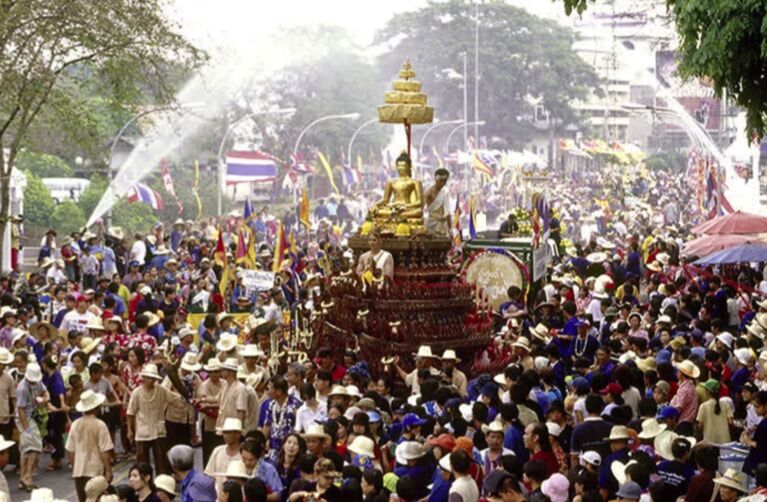Songkran celebrations to be held at Bangkok City Hall

After a three-year hiatus caused by the pandemic, the Bangkok Metropolitan Administration announced plans for major Songkran festival celebrations in the Thai capital. The event will feature a water-splashing celebration in front of City Hall in the Phra Nakhon district, which has been designated as the main venue for the festivities.
In addition, all 50 district offices across Bangkok will organise their events to celebrate the Thai New Year.
The celebrations will kick off with the procession of the Phra Phuttha Sihing, a highly revered Buddha image, from the Phutthaisawan Throne Hall at the Bangkok National Museum to City Hall on April 12. The image will be displayed at City Hall until April 14. There will be other traditional rituals such as almsgiving and water blessing ceremonies organised nearby, NNT reported.
Celebrations will also take place near Khlong Phadung Krung Kasem, according to Bangkok Governor Chadchart Sittipunt.
The Metropolitan Police Bureau will be responsible for maintaining peace and order during the festivities. Restrictions will be in place on the sale of alcoholic drinks, powder, high-pressure water guns, and inappropriate clothing (a controversial topic).
The Songkran Festival is known worldwide and is celebrated to honour family values, pay respect to seniors, and participate in traditional ceremonies throughout the nation’s temples. This festival is observed as a three-day national holiday from April 13 to April 15 in Thailand.
The festival is known for its water fights, with people throwing water at each other as a way to symbolically cleanse themselves of bad luck and misfortune. Songkran is also a time for family reunions, with many people travelling back to their hometowns to celebrate with their relatives.
During Songkran, many people visit temples to make merit and to participate in water blessing ceremonies. This year, travel lovers can look forward to 4,500 daily bus trips during Thailand’s Songkran holidays.
The word Songkran comes from the Sanskrit word “saṃkrānti,” which means “to move” or “to change.”
Latest Thailand News
Follow The Thaiger on Google News:


























